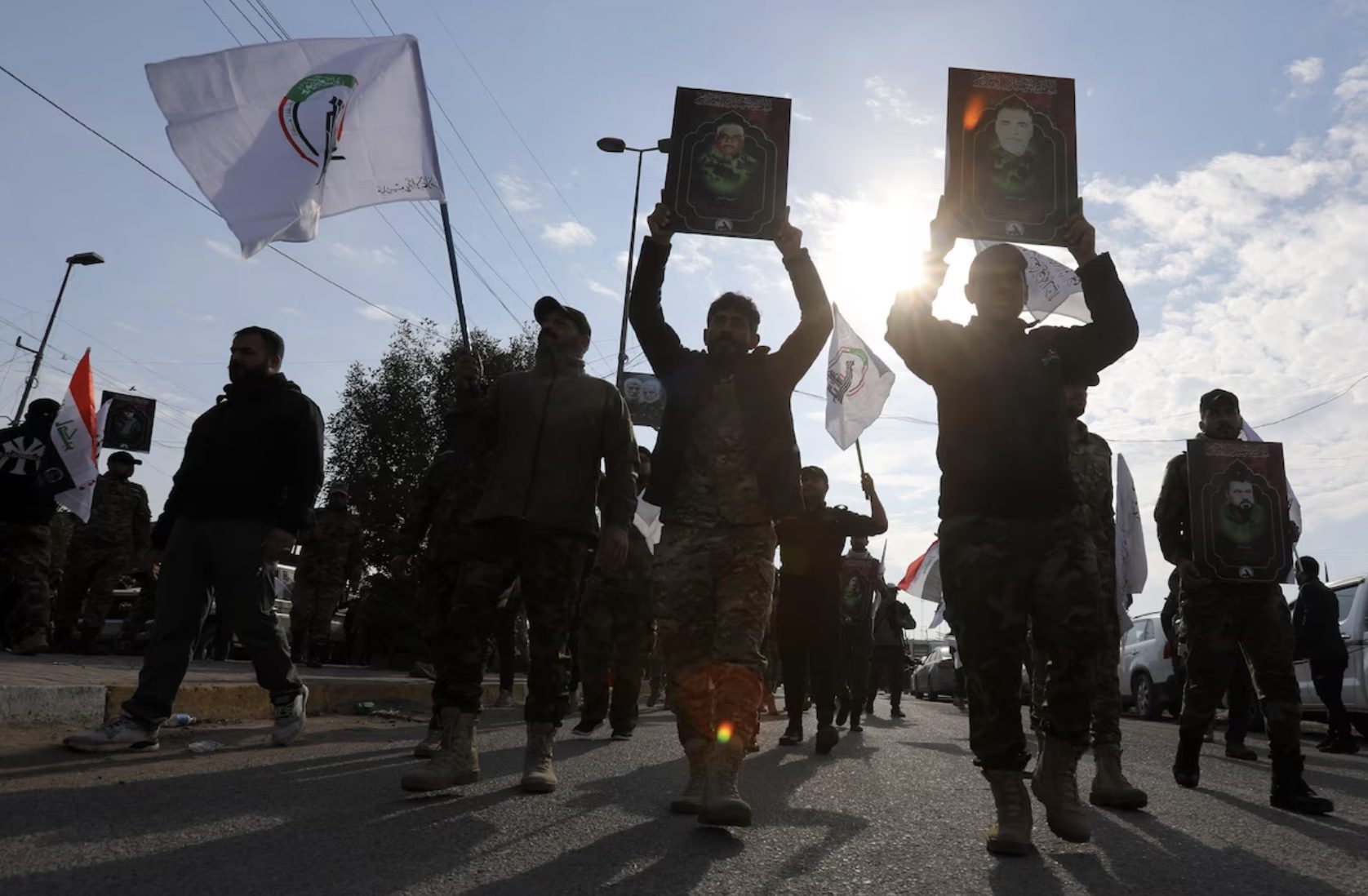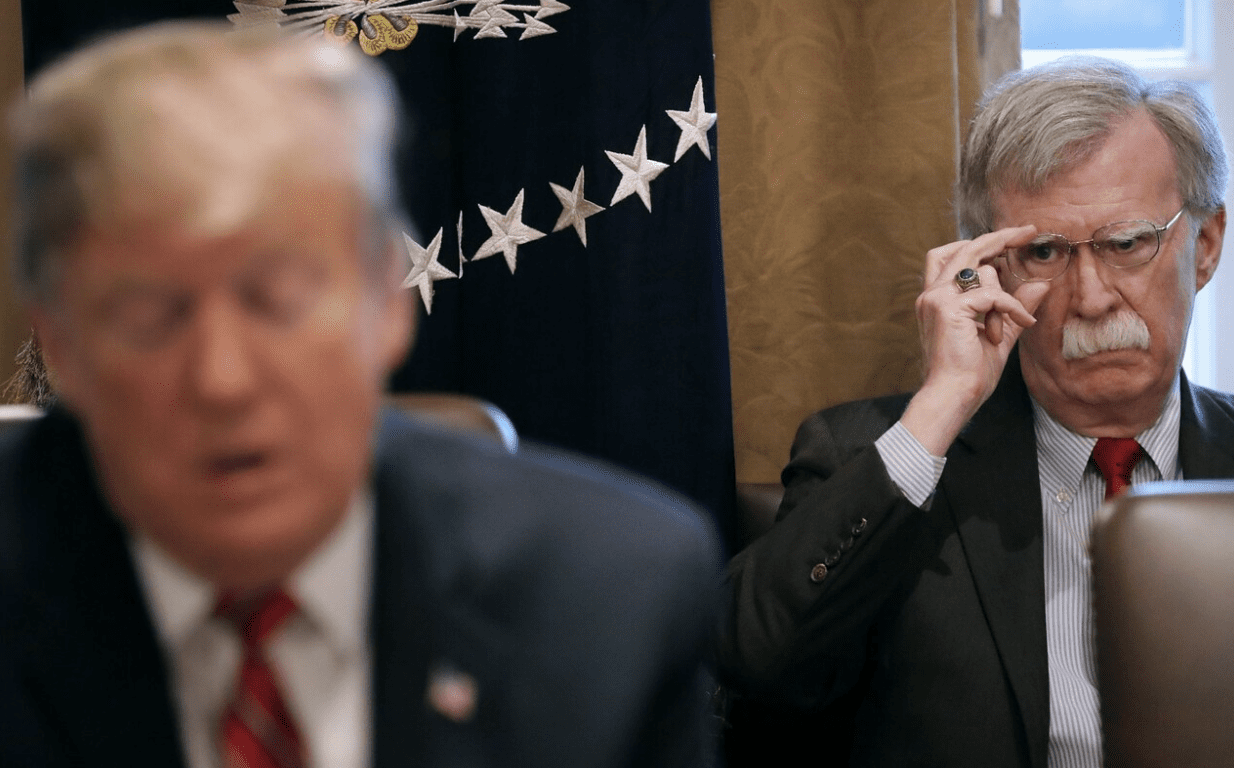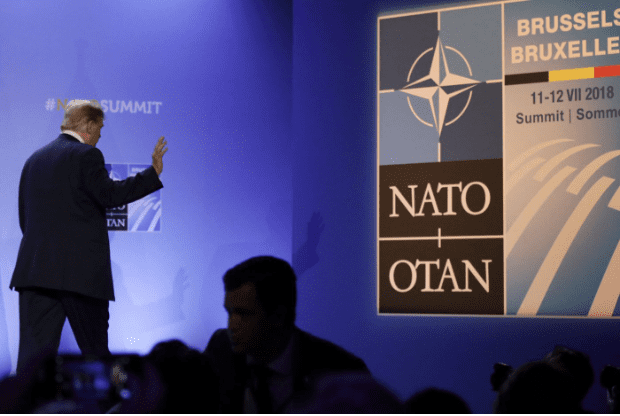Dr. David Wurmser
U.S., French and British diplomats are burning the midnight oil to concoct a formula to avoid escalation of the fighting started by Hizballah along the Lebanese-Israeli border shortly after Hamas’ invasion into Israel from Gaza on October 7. It is indeed a volatile situation, and one which cannot simply fade out or smoothly slide into quiet. Israel has made clear it can neither accept a ceasefire in place along the northern border nor simply allow the current expanded border conflict to persist at the level it currently is fought. For Jerusalem, the realities on the ground require substantial change.
Israelis — and indeed it is appropriate to speak of the people rather than just its government since polls suggest a powerful majority, nearing a consensus — understand that Hamas’ invasion was a smaller version of Hizballah’s plans on the northern border communities at the hands of Hizballah’s Radwan force. The Radwan force itself is the template upon which Hamas modelled its Nukhba force — the elite terror army that spearheaded the October 7 invasion.
At the same time, also as a result of the catastrophe of October 7, Israel has learned that a defensive strategy alone – a border wall and missile defense — will not protect Israel from another deadly surprise attack. As a result, Hizballah’s very presence in southern Lebanon is now understood by Israel to be so dangerous that neither the current parameters of the border violence nor the status quo ante before October 7 are unsustainable, and escalation is only a matter of time. Thus, diplomats are scurrying feverishly not only to reach a ceasefire but also to convince Hizballah to redeploy its terror forces kilometers northward in order to answer Israel’s need for a sharply expanded buffer zone.
The last war in 2006 between Israel and Hizballah ended in a UN Security Resolution (UNSCR 1701). The resolution defined a 30-km wide buffer zone and an international force to enforce it. Sadly, neither the UN force (UNIFIL) created nor the Lebanese Armed Forces (LAF) ever enforced it, and Hizballah almost immediately drifted back to establish itself in full along Israel’s northern border. Moreover, the UN resolution also called for Hizballah’s dismantlement and the demarcation of the Israeli-Lebanese border. Hizballah never disbanded, although the border Israel defined was acknowledged by UN surveys as the proper line.
Hizballah maintains this fiction of an unresolved border in order to justify its continued existence as a legitimate Lebanese faction defending Lebanese territory from an occupier, therein tying the legitimacy of its continued existence to the irresolution of the border. As such, it persists in demanding the ceding of territory, some of which Israel has held since 1948, as part of the border modification.
If press reports are to be believed, the current formula crafted by diplomats – which Israel has neither accepted nor rejected — is an immediate ceasefire that within days enables the withdrawal of Hizballah forces to at least 10 km northward. The idea emerges from the Israeli tactical concern that the longest range anti-tank missiles which so deeply threaten Israeli communities can accurately hit targets 10 km away. Distancing Hizballah 10km also would obstruct the Radwan force’s ability to strike without detection since it must traverse a long distance before it even reaches the border. To enforce the withdrawal, the Western powers suggest that a reinforced LAF deployment into the vacated areas can keep Hizballah out dependably enough to allay Israel’s concerns. Moreover, the currently reported ceasefire proposal by the West uses the term “border modification” rather than “border demarcation” – suggesting a subtle but important concession to Hizballah already.
It is a bad deal. It should be rejected by Israel and abandoned by Western diplomats.
Were the West to actually succeed in reaching anything close to this proposed outline, it would not stabilize the region, but instead represent a catastrophic setback for Israel and the West and a missed strategic opportunity for the region. Moreover, its flaws are not only tactical and technical – as legion as those would be — nor even only the lacerating of principles. Its greatest damage is the threat of missing a tremendous regional strategic opportunity to gravely, even mortally, wound the Iranian regime and damage its underlying reigning ideology.
Tactically, the problem with Hizballah’s threat to communities is not just what comes from within 10km. Short range missiles with devastating warheads (Burqan) are reasonably accurate and have slightly longer ranges. The 30km range, as opposed to the 10km range is a material difference in terms of pushing a large part of Hizballah’s arsenal out of range of the cities of northern Israel. Moreover, given the history of the LAF and UNIFIL’s complete incompetence in even monitoring, let alone halting, the Hizballah buildup in the south over the last two decades leaves little hope that they will actually meaningfully enforce the buffer zone. More keystone cops do not increase performance. This is especially true since the families of the Radwan force live in the southern areas of Lebanon, and thus can easily melt into the population all the way to the border without detection. In short, unless the buffer is much wider, and patrolled by forces Israel can rely upon to actually prevent the Radwan forces from infiltrating, then Israel is making once again the same mistake as in the south before October 7: the buffer is a defensive wall that can be breached – a wider one, but still the same concept that failed. Israel needs positive control and to preserve preemptive maneuver in those areas. And it cannot passively sit by watching its enemies build up, confident that its responsive capability will decisively and swiftly dispatch any threat that dared approach the border. That confidence was shattered irreparably on October 7.
Currently, in terms of principles, the UN Resolution from 2006 (1701) establishes the foundation of removing Hizballah from the south for a far more expansive buffer zone then appears currently on the table. That expansive buffer zone in the ceasefire agreement sought, as noted, a much narrower buffer. This is problematic. Once the conviction of upholding that resolution is compromised, then every principle becomes negotiable. There is no “bottom.” Any line not only Israel, but the US and France draw then is considered flexible and open to barter. Moreover, it establishes precedent; Israel concedes yet more to get Hizballah to implement what it already committed to in the past. That “double payment” signals Israel is weak and the Wet is gullible. Finally, settling for less than the terms of 1701 also validates that Hizballah’s 16-year violation of its obligations and its aggression paid off — it successfully used terror to get a better deal.
All these tactical, technical and principled objections to the proposed deal are valid, and alone should cause not only Israel but Western powers, as well, to balk at further diplomacy. But it won’t since the West is inescapably locked into a paradigm of stabilizing the region through reaching a condominium with Iran, and the leashing by Tehran of its proxies. Escalation is the greatest fear, thus, of these diplomats and through their industriousness, imagination, and near messianic fervor — mixed with immense pressure on Israel to concede on points against its better judgment – will never give up on a deal, even a bad deal. And it is precisely, thus, why one would imagine Hizballah would jump at the deal, leaving Israel in a very difficult position to say no.
And yet, Hizballah balks. It responds “no” to these proposals, which seems inexplicable given they are so advantageous and that Israel remains under such pressure to yield. Why? What calculations underlie its “Nyet”?
Ultimately, it is because Hizballah — and even more so Iran — need to control the population in the areas south of the Litani (Leontes) River but north of 10km for strategic reasons. That is not only because the Radwan force is in some ways a territorial militia and its families live in that area, but because of two other reasons, both of which allow Hizballah no room for compromise.
First, Hizballah demands border modifications not only because it wants Israel to yield, thus affording it and Lebanon the opportunity to show strength and gain territory. It is because Hizballah needs to posit demands it knows Israel cannot accept. Indeed, were the border demarked to both Israel’s and Lebanon’s satisfaction, then Hizballah would lose its claim to be a Lebanese resistance organization fighting to restore lost Lebanese territory. Under those circumstances, it would have to be disbanded immediately, not only under the terms of UNSCR 1701, but under two other UN resolutions from the same period as well. Hizballah needs the border to remain unresolved so that territory can be claimed to be “occupied” illegally and thus its continued existence is never de-legitimized.
The second reason, which is the also the most important, is the imperative of breaking Hizballah’s grip on the population south of the Litani (Leontes) River (Jabal Amal), is also neither primarily a tactical (10, 12. or 20 km zone) objective or a principled reason (importance of upholding UNSC resolutions). It is because south Lebanon is a supremely important battleground in an ideological-theological warfare campaign waged regionally by Tehran which could just as easily be inverted and waged against the Iranian regime. It is really about the broader campaign of strategically defeating the current Iranian brand of revolutionary Shiism.
The Shiite areas of southern Lebanon are the country’s Shiite heartland. They are also one of the most important Shiite populations globally. It is where Ayatollah Musa al-Sadr initiated the Shiite Awakening in the 1970s. As Fouad Ajami wrote in his most personal book, The Vanished Imam, al Sadr emerged from among the most established of the establishment Shiite families in Iraq and Iran, and transplanted himself to the most oppressed and impoverished community of Shiites, the Jebel Amal in southern Lebanon. It was a backwater community which once a millennium ago was a leading center of Shiite learning. Laying in its graveyards are the luminaries of the 10th and 11th centuries that forged Shiism for the last millennium. But time was unkind, and after Saladdin not only conquered Jerusalem, but aggressively ushered in an age of Sunni supremacy, this once vibrant center deteriorated into sparsely-populated and far-flung, sleepy villages on the sidelines of history – as indeed did much of the Shiite world.
One cannot thus imagine how electric and invigorating for the Shiite world it was to see this upstart Ayatollah, Musa al-Sadr, restore Lebanese Shiism into a political force and a rising community that lead the reversal of the millennium-long slumber of the entire Shiite community of the Middle East and became the cradle of restored Shiite confidence and relevance. He fathered the Shiite Awakening. It was the magical land at the magical moment led by this enthralling young Ayatollah.
By the last year of the 1970s, al-Sadr, however, had engendered two main enemies: Yasir Arafat and Ayatollah Rouholla Khomeini. Arafat was threatened by al-Sadr and the Amal movement he founded, because Arafat was the embodiment of Arab nationalism, which had doubled as Sunni supremacy over Lebanon’s and Iraq’s Shiites. For the West, Arafat was about Palestine, but for Shiites, he was about Sunni oppression. Thus, the PLO, who saw the armed militia movement of Amal created by al-Sadr as a threat to Fatah-stan in late 1970s, had him killed in a visit to Libya. For our purposes, however, more important was that the murder was welcomed by Ayatollah Khomeini – although he never openly expressed joy, neither has Iran ever championed the cause of avenging al-Sadr’s demise. Khomeini was in the final stretch in the process of bringing down the Shah of Iran. For that, he needed help in organizing terror structure from Arafat (Mughniyah/ Force 17). But even more importantly, he needed Arafat to crush the Shiite Awakening whose mantle al-Sadr wore.
Khomeini had his sights not only on Iran, but on Shiite leadership. It was both expansionist but also essential. To turn Shiism into a powerful political tool of regional ambition, Khomeini had to crush all forms of Shiism that could challenge him. To do so, however, he aspired to take over and establish himself – dishonestly – as its founder and father of the Shiite Awakening. Moreover, al-Sadr was a particular threat. He was a highly respected clerical leader—a more traditional theologian and not a firebrand adventurer — who rejected the foundation of Iran’s revolutionary ideology and core principle of Valiyet e-Faqih or Rule of the Jurisprudent, which was a renegade Shiite minority view that established a theological totalitarian dictatorship. The new crowd in Tehran could not but be deeply threatened by the rancorous population of southern Lebanon and its more traditional view of Shiism, which has strong ties to Iraqi Shiite leaders too. In short, the Jabal Amal Shiites posed a theological dagger into Iran’s ideological heart regionally, not just in Lebanon, and thus al-Sadr’s murder was a welcome development. But it was not enough to remove the threat of al-Sadr; Lebanon’s Shiites were still not loyal, and the Amal organization established by al-Sadr remained the voice of those Shiites. Thus, positive control of Jebel Amal required establishing a completely subordinate proxy, Hizballah, to control Amal and the Shiites of Lebanon. Hizballah’s existence, and its control over south Lebanon, was a strategic aim of existential importance to Khomeini upon taking office.
Nothing has changed in this regard in the last 45 years. The governing theology of Iran remains this revolutionary, minority interpretation of Shiism rejected by most Shiite clerics. To control Lebanon’s Shiites, and especially to control Amal, which is the force that was created by Ayatollah Musa al-Sadr in the 1970s as the flagship of the Shiite Awakening, Iran needs as much now as ever to employ Hizballah to force Lebanon’s Shiites into submission. Amal likely would split from Iran if not subject to Hizballah control. Because Iran’s Valiyet e-Faqih theology and its Hizballahi minions are not only a minority view among Lebanon’s Shiites, but also represent a minority interpretation violating traditional Shiite thought among other regional Shiites, especially in southern Iraq, then how goes Jabal Amal can determine how goes Najaf and Karbala. And indeed, the same clerical families are in both: Musa al-Sadr’s relative is Muqtada al-Sadr in Iraq. Thus, if those areas in Lebanon fall from Iran’s positive control, it ideologically rattles the regime in Iran and undermines it profoundly in Iraq since it would create not only an uncontrolled Shiite population influencing Iraqi Shiites, but also because it would have established Iran and Hizballah as failures in their self-anointed role as protector of Shiites.
As such, the strategic imperative of delegitimizing Hizballah and laying waste to its theological foundations – which carries the conflict away from Israel’s borders which reverberates not only in Najaf and Karbala, but in Tehran itself — cannot be accomplished by a 10km buffer. Nor through a 20km buffer. To remove the Jabal Amal Shiites from under Hizballah’s iron hand, Hizballah would need to lose control of the entire area not only up to and surrounding the Litani (Leontes) River, but even the Awali (Asclepius) River.
In the end, Iran needs Hizballah to exist not only to maintain an active front against Israel, but even more importantly to maintain control over south Lebanon’s Shiites who left to their own devices would likely emerge as a mortal threat to the ideological construct of the Iranian regime itself. In other words, not only does Iran need the current diplomatic efforts to fail to prevent Hizballah’s being disbanded (but perhaps pared back north of the Litani River) as a strategic asset of Iranian power, but Tehran needs to prevent Hizballah’s withdrawal from the south as a matter of the Islamic Revolution’s own legitimacy and existence in Iran itself. As such, even though to Western calculations, the ceasefire deal being offered is a deal too good to refuse, for Hizballah and Iran, it is a Trojan poison that must be refused.
The Gaza war and the conflict between Hizballah and Israel are regional strategic wars in a great twilight struggle between Iran and the West, not only between Iran and Israel. It is imperative that the West, thus, switch from a passivity approach and hope of moderation in Tehran – the very concept that failed on October 7 – and turn to a more forward leaning strategy. The West must allow Israel not only to properly defend itself, but to seize the rare confluent opportunity given us along with Israel to deal Iran’s revolutionary ideology a body blow, perhaps a fatal blow, rather than work to straight-jacket Israel and force it into validating Hizballah’s legitimacy, into allowing Hizballah to evince its strength and into relegating Lebanese Shiites to the clutches of this twisted Ghulat (extremist offshoot) of Shiism.
The war in Jebel Amal – and the imperative of pushing Hizballah entirely out of Lebanon south of the Awali River (not only Litani) — thus is a major battle in taking the war into Tehran itself.





